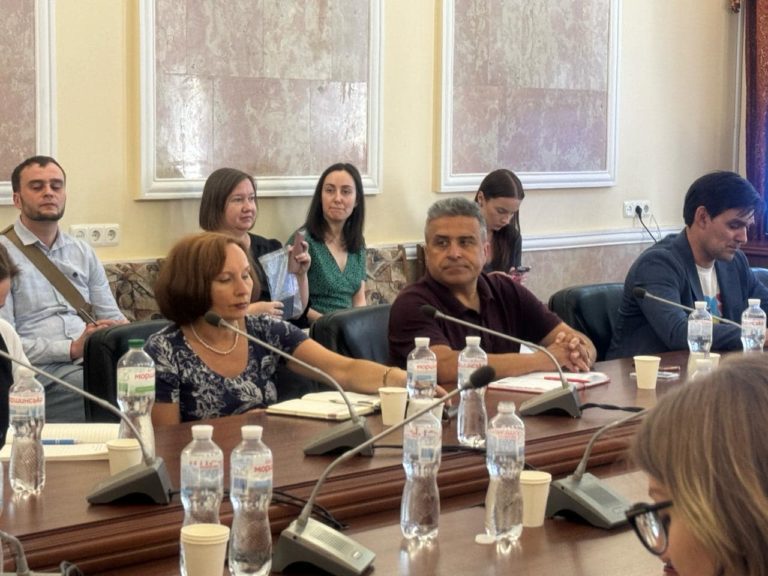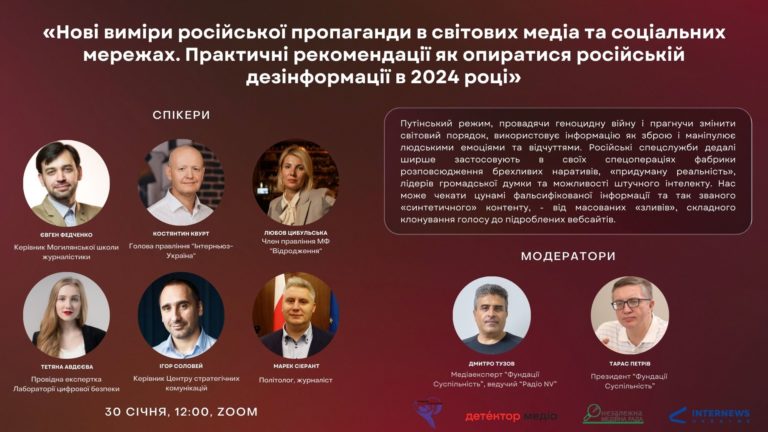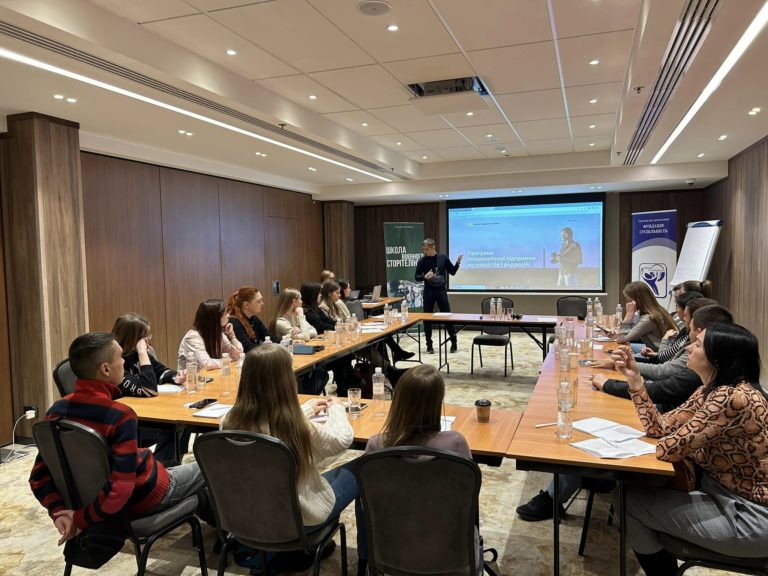On September 26, the Media Mobility Hub participants underwent an intensive course as part of the School of Strategic Communications and Anti-Fake.
The School of Strategic Communications and Anti-Fake aims to provide intensive training in strategic communications in Ukraine, combating information manipulations, aggressive disinformation and fake news, avoiding being trapped by a vast array of news, fact-checking information promptly and correctly from open sources, and identifying virus campaigns by bot farms and trolls.
The lecturers were Dariia Kariakina, UA:PBC supervisory board member, Dmytro Tuzov, NV Radio host, Vitaliy Moroz, new media program head at Internews Ukraine, Mariia Pysarenko, correspondent at Channel 5.
Topics under discussion included:
- cultural diplomacy strategy and ensuring the rights of national minorities in the present-day media practices;
As journalists, we really bear great responsibility for our words. National minorities is a really sensitive issue, and very often journalists’ biased approach incites interethnic conflict or discrimination on ethnic grounds. Sometimes, it is done deliberately by politicians and journalists to pursue their own ends.
To avoid such situations, you should provide the national minorities with the opportunity to express themselves, when covering a particular problem relating to them. That is, express themselves, not cut out the part you need. Find out where the bias comes from, and cover the topic from different angles, – Dariia Kariakina.
- methods of identifying false information and political PR in daily newsroom work;
Unfortunately, not a day goes by without fake news. The media re-transmit false information without fact-checking it. This is how we end up swallowing the bait of the destabilization system; and in reality, very serious and respectable organizations are working to spread fake news, – Dmytro Tuzov.
- how to identify disinformation and propaganda in the digital space.
Manipulations are part of our life and we often agree with them. In supermarkets, for one, this is called marketing. The question is whether this manipulation is harmful or not.
Manipulations are often normalized by the media, not directly, but using television techniques leading you to certain conclusions. Because if you think you’ve reached a certain conclusion yourself, you will cherish it, – Vitaliy Moroz.
- new models of studio work in line with high journalistic standards.
It is very important for a journalist to switch between a plethora of different tasks and topics without losing interest in these topics or turning into a microphone stand, – Mariia Pysarenko.
This event is made possible with the support of USAID Media Program in Ukraine, implemented by Internews, and with the help of private patrons.


